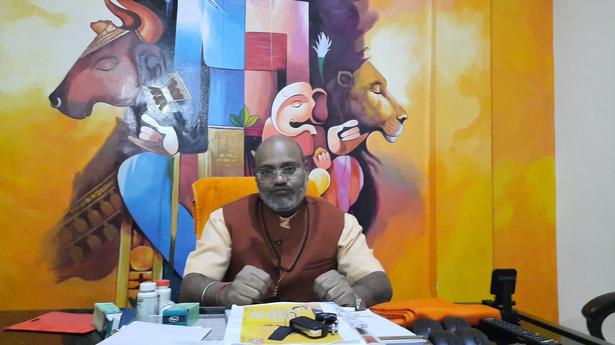
Understanding the Haridwar conclave
The Hindu
Incitement to violence against a community is wrongly being referred to only as hate speech
In January, Gregory Stanton, the founder of Genocide Watch, who had predicted a genocide in Rwanda years before it took place in 1994, sounded the alarm on violence against Muslims in India. He condemned the statements made at the ‘Dharam Sansad’ organised in Haridwar and said that they were intended to incite violence. Genocide Watch is an international organisation established to prevent genocide and other kinds of mass murder and is credited with making critical interventions over the years.
This statement reveals the quick and radical shift in India’s sociopolitical narrative. The Dharam Sansad deserves to be acknowledged as an open call for violence against a community. Moreover, the state’s inaction to proceed against the perpetrators violates principles under the Constitution and international law.

According to the organisers of the event, Karman Week 2025 will highlight India’s leadership in public-private partnerships, climate-focused space applications, and international cooperation. The program will include direct engagements with the Indian space sector, alongside curated cultural activities and a nature-based leadership retreat.

In the 24-hour period ending at 8.30 a.m. on July 24, Dakshina Kannada district recorded an average of 55 mm rainfall. Moodbidri taluk recorded the maximum of 70.4 mm, followed by 63.8 mm in Ullal, 63.4 mm in Mangaluru, 62.8 mm in Mulki, 62.5 mm in Bantwal, 57.5 mm in Kadaba, 54.7 mm in Belthangady, 42.9 mm in Puttur and 41.5 mm in Sullia taluk.





















 Run 3 Space | Play Space Running Game
Run 3 Space | Play Space Running Game Traffic Jam 3D | Online Racing Game
Traffic Jam 3D | Online Racing Game Duck Hunt | Play Old Classic Game
Duck Hunt | Play Old Classic Game









